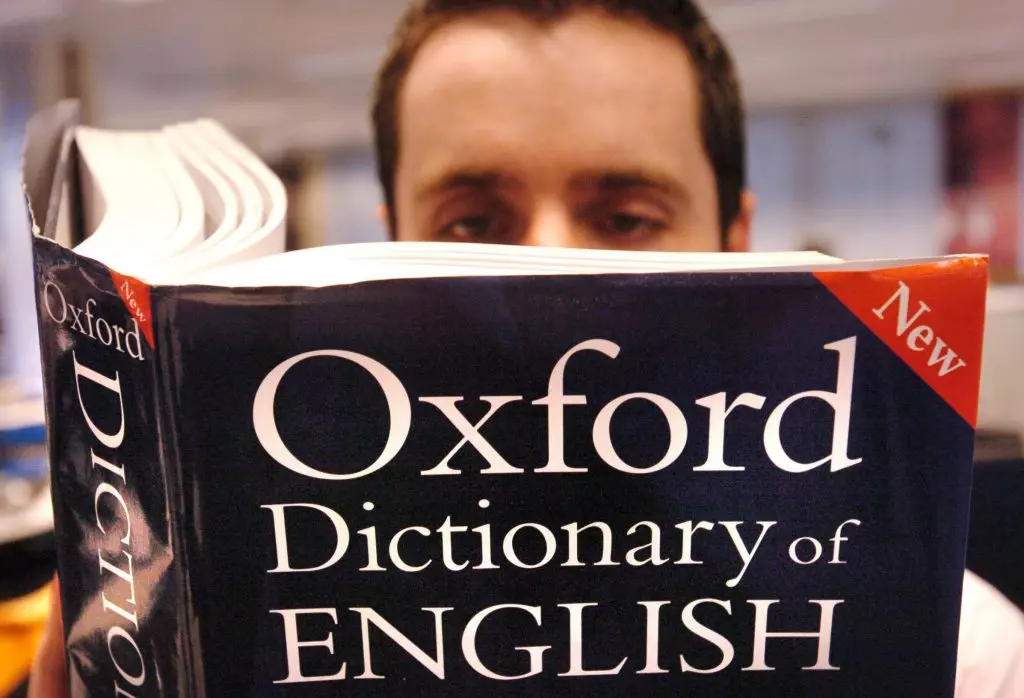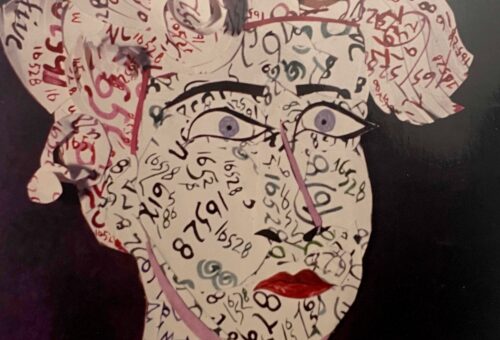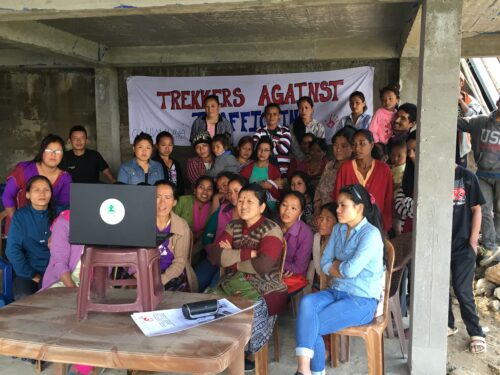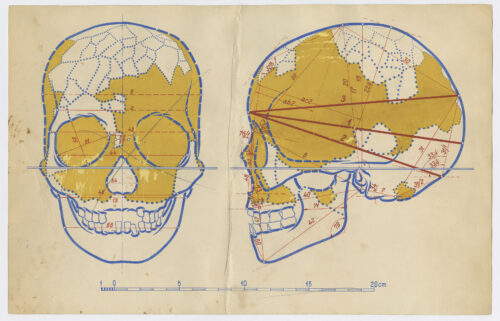The Power of the Dictionary

In late January, one of the authors of this piece—anthropologist Michael Oman-Reagan—wanted to use the word rabid in a tweet about U.S. politics. Looking up the word in his MacBook’s dictionary, he noticed that the example given for the definition was the phrase “a rabid feminist.” Oman-Reagan posted a tweet to Oxford Dictionaries, which provides the content for MacBook dictionaries: “Hey @OxfordWords, why is ‘rabid feminist’ the usage example of ‘rabid’ in your dictionary—maybe change that?” Oxford’s social media response was mocking: “If only there were a word to describe how strongly you felt about feminism,” implying, we presume, that Oman-Reagan too was a “rabid feminist.”
Frustrated, Oman-Reagan began to dig deeper into his computer’s dictionary and found a pervasive pattern of sexism. For shrill, the example was “the rising shrill of women’s voices”; for nagging, it was “a nagging wife” (now changed to “nagging parents”); for grating, “her high, grating voice”; for promiscuous, “she’s a wild, promiscuous girl”; for psyche, “I will never really fathom the female psyche.” The examples for occupations were often gendered in an archaic way—male pronouns were used to illustrate the definitions of research and doctor, while female pronouns were used to describe doing housework and the profession of nursing.
Conversations using the hashtag #OxfordSexism exploded on Twitter, and media outlets throughout the English-speaking world began to report the story, followed by articles about the issue in Swedish, Indonesian, Dutch, and other languages. Oman-Reagan helped to highlight the tweets of Sarah Shulist and Lavanya Murali Proctor (the other authors of this piece), both of whom are anthropologists—Shulist with expertise in language and dictionaries and Proctor in language and gender. Both Oman-Reagan and Shulist spoke to the press. After the issue went viral, Oman-Reagan also discovered that he had not been the first to see this pattern in the Oxford Dictionaries—a year and a half earlier, in 2014, a poet named Nordette Adams had written a blog post about Oxford Dictionaries’ use of “rabid feminist,” but it had received limited attention.
While most of the media stories were supportive of a feminist perspective, a large number of commenters on Twitter and various blogs were hostile to it. The debate was not just about a few words. It was about much deeper issues of sexism in language and linguistic authority—about how dictionaries are perceived, and about the nature and creation of linguistic meanings and truths. Is the description of a woman’s shrill voice sexist, or simply accurate? Are dictionaries objective, neutral reflections of language usage, or do they help to reinforce sexism?
Many of the online commenters defending Oxford Dictionaries’ work relied upon a “descriptivist ethos”: Dictionaries, they argued, simply describe how language is used—they do not prescribe how it should be used. A dictionary includes words because they are commonly used, not because it wants to legitimize, validate, or encourage particular ways of using them; that’s why dictionaries contain everything from the most offensive slurs to modern slang, like selfie.
Like the inclusion of words and their definitions, example sentences and phrases are meant to simply reflect usage. As Katherine Connor Martin, head of U.S. dictionaries at Oxford University Press, explained on the Oxford Dictionaries blog, their published examples aren’t written by dictionary compilers; they are taken from a huge corpus of web pages, novels, newspaper articles, academic journals, blog posts, and emails, amounting to a pile of some 2.5 billion words. Oxford Dictionaries uses software to determine the “most typical manner” in which a word is used so dictionary compilers can pick the best examples.
But there is something circular about the descriptivist argument, as noted in a New Yorker article about the debate: “Lexicographers say that the words and meanings they add to the dictionary have already been validated by the public’s use, but, to the public, a word’s inclusion in the dictionary is the thing that legitimizes it,” the author wrote. As University of Oxford feminist linguist Deborah Cameron notes on her blog, when the Oxford English Dictionary (OED) added cisgender to their listings in 2015, advocates hailed the move as proof that the word and all the implications behind it were valid—that it was a way of “making language more inclusive.”
People rarely question the authority of dictionaries, and the Oxford University Press name carries particular weight. Oxford Dictionaries provides the default dictionary used in iOS and Android operating systems and by Apple and Google apps. The press also produces the leading historical dictionary of the English language, the OED. Oxford’s authority takes on additional force in a world where the dictionary isn’t just a heavy, cumbersome tome but an easily accessed app that is automatically downloaded onto smartphones and tablets.
Every time we turn to a dictionary to illustrate a point or to prove that we understand the “true” and “accurate” meaning of a word or phrase, we reinforce the dictionary’s power as a purveyor of truth. It becomes easy to argue that women’s voices really are shrill or grating, and that feminists really are rabid about their beliefs—because it says so in the dictionary.
If only there were a word to describe how strongly you felt about feminism… https://t.co/mAsmjUBoOs
— Oxford Languages (@OxLanguages) January 22, 2016
Although the idea has been a topic of criticism for decades now, the dominant Western construct of “truth” continues to revolve around the notion of a neutral, outside observer. The public seems to perceive dictionaries as being “extrasocial”—that is, unaffected by society’s attitudes and purified of its cultural baggage. It is, however, impossible for any text to exist outside of society, as both its creation and its use are colored by cultural expectations, beliefs, and practices. Real people rooted in cultural contexts build the dictionary, read the dictionary, and interact with it. The purportedly neutral example sentences and phrases emerge from these roots and reflect what the dictionary’s builders perceive to be “normal.”
Some of the commenters in this debate countered that not only were these particular examples mere repetitions of language-as-used, but also, they weren’t even sexist. They were simply true descriptions of a world in which women’s voices really are shrill and grating.
Even if dictionaries are true representations of the real world, the selection of examples as a whole has an undeniable impact. It is hard to make a convincing argument that a dictionary that repeatedly refers to things like female secretaries and bake sales staffed by moms isn’t revealing and reinforcing a sexist bias. There are only a small number of examples used for each word in the Oxford Dictionaries apps (although there are sometimes 20 or more in the website version). Given that they are designed to exemplify the most representative use of that word, their power, relative to their quantity, is clearly disproportionate.
In the end, Oxford Dictionaries’ Martin apologized for their use of “a rabid feminist,” saying it was “a poorly chosen example in that the controversial and impolitic nature of the example distracted from the dictionary’s aim of describing and clarifying meaning.” A different phrase, such as “rabid extremist” or “rabid fan,” she noted, would have done a better job. Oxford did change this example sentence on the Oxford Dictionaries website, and they quietly rewrote a lot of the other examples too: shrill is now represented in the neutrally phrased “a shrill laugh,” and while grating still includes the old example, it is balanced with the new phrase “his grating, confrontational personality.” The versions of the dictionary that interface with commonly used apps and operating systems will take time to be updated.
The best examples of word usage, Martin writes, “are so ordinary as to be downright boring.” But the fact that sexism creeps into normalized, everyday spaces is precisely what is so disturbing. From a feminist perspective, examples of overt sexism may be ubiquitous, but they are anything but boring. The people who make decisions about what goes into the dictionary have the power to define not only terms like shrill but also the boundaries of normality.



































